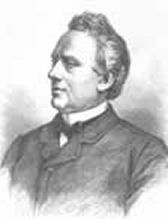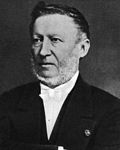The Japanese political process has three types of elections: general elections to the House of Representatives held every four years, elections to the House of Councillors held every three years to choose one-half of its members, and local elections held every four years for offices in prefectures, cities, and villages. Elections are supervised by election committees at each administrative level under the general direction of the Central Election Administration Committee, an attached organization to the Ministry of Internal Affairs and Communications (MIC). The minimum voting age in Japan's non-compulsory electoral system was reduced from twenty to eighteen years in June 2016. Voters must satisfy a three-month residency requirement before being allowed to cast a ballot.
Ashburton was a New Zealand electorate, first created in 1881 and centred on the South Island town of Ashburton.

General elections were held in Belgium on 23 May 1965. The result was a victory for the Christian Social Party, which won 77 of the 212 seats in the Chamber of Representatives and 44 of the 106 seats in the Senate. Voter turnout was 91.6%. Elections for the nine provincial councils were also held.

Full general elections were held in Belgium on 14 October 1894, with run-off elections held on 21 October 1894.

Full general elections were held in Belgium on 27 May 1900.

Full general elections were held in Belgium on 2 June 1912.

Partial general elections were held in Belgium on 8 June 1847. The result was a victory for the new Liberal Association, which had been formed the previous year. It won 33 seats to the Catholics' 21, as the latter were split into dogmatic and liberal groups. Voter turnout was 77%, although only 1% of the country's population was eligible to vote.

General elections were held in Belgium on Tuesday 14 June 1892, the first full general elections since 1870 and the last before the introduction of universal male suffrage prior to the 1894 elections. The result was a victory for the Catholic Party, which won 92 of the 152 seats in the Chamber of Representatives and 46 of the 76 seats in the Senate. Only 2.2% of the country's population were eligible to vote.
General elections were held in Belgium on 29 August 1831. They were the first elections to the new bicameral parliament, as instituted by the Belgian Constitution adopted in February 1831.

Partial general elections were held in Belgium on 8 June 1852. In the elections for the Chamber of Representatives the result was a victory for the Liberal Party, who won 57 of the 108 seats. Voter turnout was 69.2%, although only 42,053 people were eligible to vote.

General elections were held in Belgium on 10 December 1857, the first full general elections since 1848. The elections were called by royal order of 12 November 1857, dissolving the Chamber of Representatives that had convened in a new session only two days earlier.

General elections were held in Belgium on 11 August 1864, the first full general elections since 1857. Although the Catholics received the most votes for seats in the Chamber of Representatives, the result was a victory for the Liberal Party, which won 64 of the 116 seats. Voter turnout was 76.7%, although only 103,717 people were eligible to vote.

Partial general elections were held in Belgium on 12 June 1866. In the elections for the Chamber of Representatives the result was a victory for the Liberal Party, which won 70 of the 122 seats. Voter turnout was 70%, although only 51,465 people were eligible to vote.

Partial general elections were held in Belgium on 8 June 1880. In the elections for the Chamber of Representatives the result was a victory for the Liberal Party, which won 74 of the 132 seats. Voter turnout was 67.2%, although only 62,936 people were eligible to vote.

Partial general elections were held in Belgium on 10 June 1890. In the elections for the Chamber of Representatives the result was a victory for the Catholic Party, which won 94 of the 138 seats.

Partial general elections were held in Belgium on 14 June 1859. The result was a victory for the Liberal Party, which won 69 of the 116 seats in the Chamber of Representatives and 31 of the 58 seats in the Senate. Voter turnout was 55.9%, although only 49,672 people were eligible to vote.

Partial general elections were held in Belgium on 9 June 1863. The result was a victory for the Liberal Party, which won 59 of the 116 seats in the Chamber of Representatives and 33 of the 58 seats in the Senate. Voter turnout was 74.5%, although only 52,519 people were eligible to vote.

Early general elections were held in Belgium on 2 August 1870, the second that year after the partial elections in June had ended with both the Catholic Party and the Liberal Party holding 61 seats each. The result was a victory for the Catholic Party, which won 72 of the 124 seats in the Chamber of Representatives and 34 of the 62 seats in the Senate. Voter turnout was 68%, although only 107,099 people were eligible to vote.

Partial general elections were held in Belgium on 13 June 1882. The result was a victory for the Liberal Party, which won 79 of the 138 seats in the Chamber of Representatives and 37 of the 69 seats in the Senate. Voter turnout was 75.1%, although only 55,517 people were eligible to vote.

Legislative elections were held in Belgium in June and July 1884, for partial Chamber and full Senate elections respectively. Voter turnout was 79.1% in the Chamber of Representatives elections, although only 69,276 people were eligible to vote.














